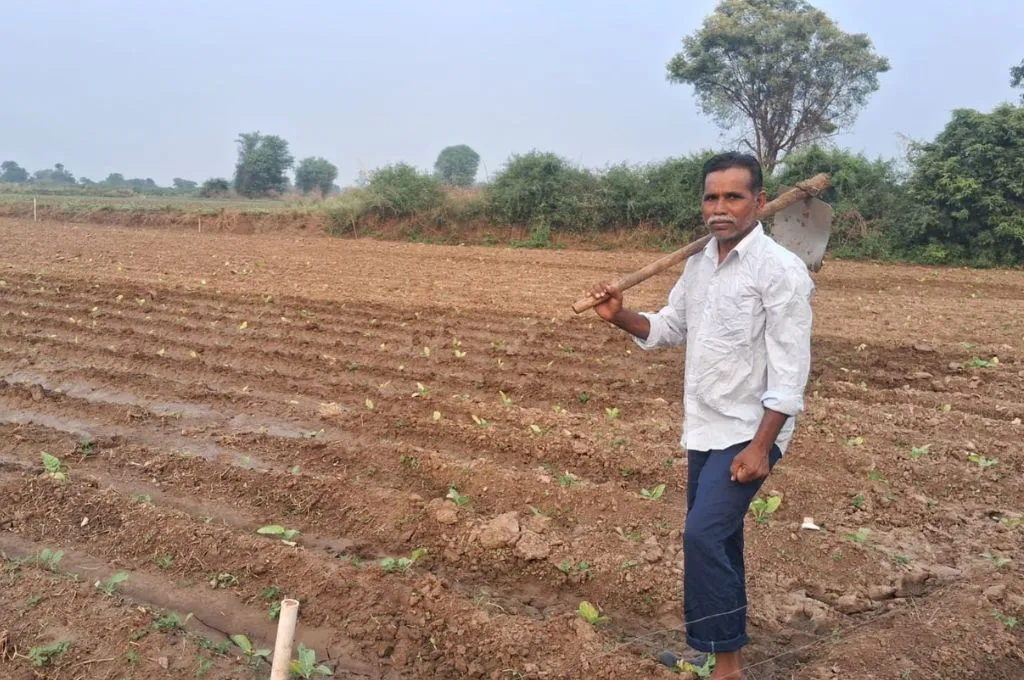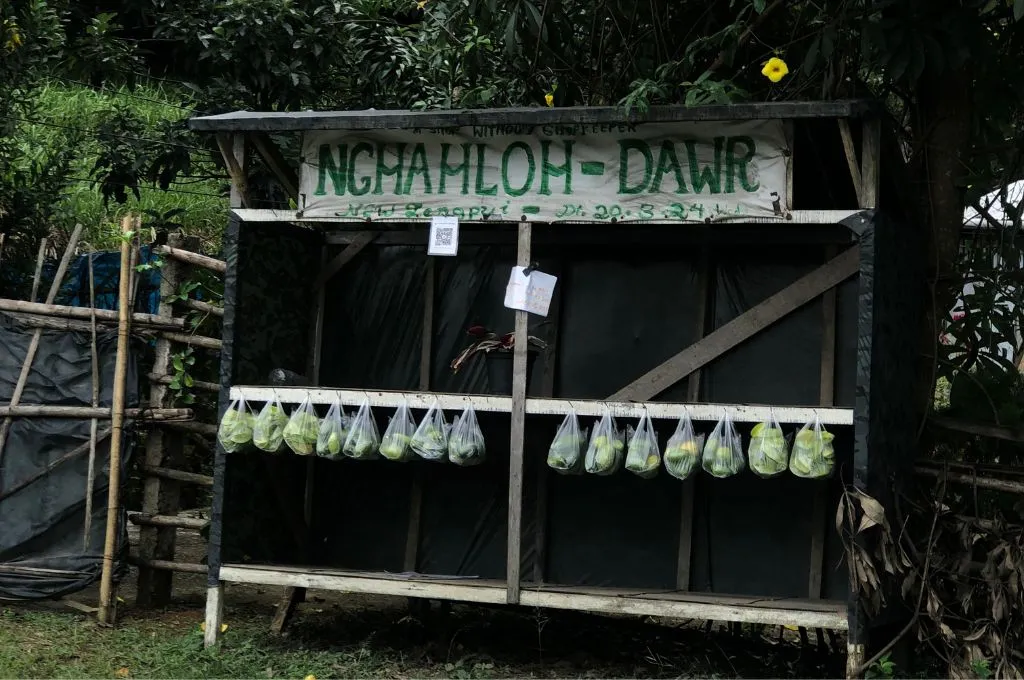No green grass for indigenous women in Odisha
In the Koraput district of Odisha, women have a deep-rooted relationship with the forest, often relying on its resources to meet many of their daily needs. Plants found in the forest, such as mushroom and saag leaves, are a staple part of their traditional diets. In addition to edible plants, women collect several medicinal plants such as patal garudi (Cocculus hirsutus), manjuati (Lawsonia inermis), and chitramul (Plumbago zeylanica). They source materials commonly used in the construction of their houses—such as wood, bamboo, leaves of tendu and sal, and different types of soil used in plastering—from the forest as well.
Tiger grass is another plant found in the surrounding forest area that plays a crucial role in women’s lives. It is used to make phool jhadus or grass brooms, which are commonly used to sweep floors in households across India. Women collect this grass and leave it out in the sun to dry for a week. After it dries, it is tied into bundles using a metal coil to make the broom. While many depend on these brooms for their household needs, they are also an important source of livelihood for several indigenous people in the region who sell them in the weekly haat.
However, in the last few years, the district of Koraput has been experiencing delayed monsoons and extended summers. As a result, many of these forest plants have been drying up. This has become a major cause of concern, particularly among women who are dependent on several forest resources for their household needs or livelihoods. “In the last 10 years, we have noticed that our forests have shrunk. In most places, many plants have either entirely disappeared or are available very scarcely,” says Sunita Muduli from Potpandi village.
For instance, mushrooms—being easily found in the forest—were a dietary staple for the majority of indigenous families. However, they have now become a prized commodity due to unseasonal and poor rainfall. Production of grass brooms, even for personal or household use, has also become difficult. Women are no longer able to find tiger grass in the forest. Even when it rains, they have to cover great distances and spend a lot more time trying to find tiger grass. This has significantly affected the livelihoods of those women who used to sell brooms in the market.
The scarcity of tiger grass and mushrooms has also increased women’s dependence on markets. For instance, they now have to replace their grass brooms with plastic brooms, even for personal use. However, not everyone can afford these as, at INR 80–100, they are an expensive purchase. Those who cannot pay for plastic brooms are forced to make do with old ones or put in more effort to find tiger grass. Similarly, women now have to rely on markets for mushrooms that were previously abundant in the region. They have to buy mushrooms at INR 800 per kg, which puts them out of reach for many. As a result of these steep prices, people have either turned to buying potatoes, which are the most affordable, or consuming home-grown vegetables such as pumpkins and brinjals. Poor harvests of indigenous vegetables and fruits have significantly affected the diet of the people living here as they have to replace nutritious foods with whatever is cheaper and easily available.
As told to IDR by Rukmani Deulpadia, Raila Gadba, Lili Gadba, and Sunita Muduli, with support from Bidyut Mohanty, Founder, Society for Promoting Rural Education and Development (SPREAD).
—
Know more: Read this article to learn more about the impact of climate change on women in Odisha.



